In today's fast-paced digital landscape, evaluating technology suppliers is more crucial than ever for ensuring seamless operations and future growth. Companies often find themselves sifting through countless options, making it essential to grasp what truly sets one supplier apart from another. By focusing on key factors such as reliability, innovation, and customer support, organizations can make informed decisions that align with their strategic goals. Ready to dive deeper into effective technology supplier evaluation? Keep reading!
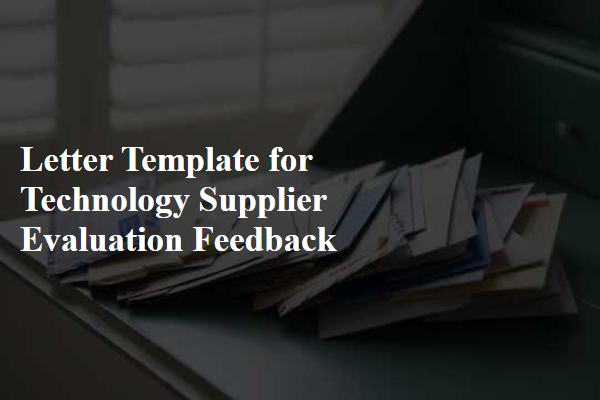
Clear communication and response times
Effective communication is crucial in technology supplier evaluations, particularly regarding responsiveness and clarity of information. Suppliers must exhibit prompt response times, ideally within 24 hours, to ensure project timelines remain on track. Clear communication channels, such as dedicated support teams or ticketing systems, enhance transparency and foster a collaborative environment. Evaluating suppliers on their ability to provide regular updates during critical phases, like product development or issue resolution, is essential. Consistent engagement can prevent misunderstandings and ensure that technical requirements are met, ultimately leading to successful partnerships in the technology sector.
Product quality and reliability
Product quality and reliability are crucial factors for technology suppliers, particularly for consumer electronics companies like Apple or Samsung. The evaluation of product quality often includes assessing durability against physical stress, such as drops (over 1 meter in height) and exposure to extreme temperatures (ranging from -20 to 60 degrees Celsius). Reliability involves the performance consistency of components, including chips and batteries, across various conditions, potentially spanning millions of operational cycles. Supplier certifications, such as ISO 9001 or IPC standards, can indicate high-quality manufacturing processes. Additionally, customer return rates (typically under 2% for reliable products) serve as a benchmark for assessing the supplier's commitment to quality. Long-term partnerships may depend on these evaluations, impacting production timelines and overall market performance.
Cost-effectiveness and pricing structure
Cost-effectiveness is an essential factor when evaluating technology suppliers, particularly in relation to pricing structures. A competitive pricing strategy can significantly influence the overall budget for projects involving IT infrastructure, software licensing, and hardware procurement. For instance, comparing quotes from multiple suppliers can reveal significant differences in costs for similar products, such as cloud storage services or server solutions, with providers like Amazon Web Services and Microsoft Azure offering tiered pricing based on usage. Evaluating long-term costs, including maintenance fees and potential discounts for bulk purchases, plays a critical role in determining overall value. Notably, understanding the total cost of ownership (TCO) enables organizations to assess both direct and hidden expenses associated with supplier contracts, ensuring a comprehensive analysis of cost-effectiveness.
Technical support and after-sales service
The evaluation of technical support and after-sales service from technology suppliers is critical for long-term partnerships. Effective support channels, including phone (24/7 availability recommended) and email (response time goal of under 24 hours), ensure prompt resolution of issues. Technical representatives should possess certifications such as CompTIA A+ or Microsoft Certified Professional to validate expertise. Regular maintenance schedules (ideally quarterly) contribute to system longevity and performance. User feedback mechanisms, like satisfaction surveys after support interactions, help assess service quality. Additionally, reliable documentation, including product manuals and troubleshooting guides, enhances user experience and empowers customers to resolve minor issues independently, minimizing downtime.
Compliance with industry standards and regulations
Evaluating technology suppliers for compliance with industry standards and regulations is critical in maintaining quality and safety. Suppliers must adhere to internationally recognized standards such as ISO 9001 for quality management systems and ISO/IEC 27001 for information security management. Regulatory compliance includes adhering to data protection laws like GDPR in Europe and HIPAA in the United States. Additionally, suppliers should demonstrate conformity with industry-specific standards such as PCI DSS for payment card security or CE marking for products sold in the European Economic Area, ensuring they meet health, safety, and environmental protection requirements. Thorough assessments of supplier documentation, certifications, and audit results can reveal their commitment to compliance, significantly impacting procurement decisions and minimizing risks associated with non-compliance.

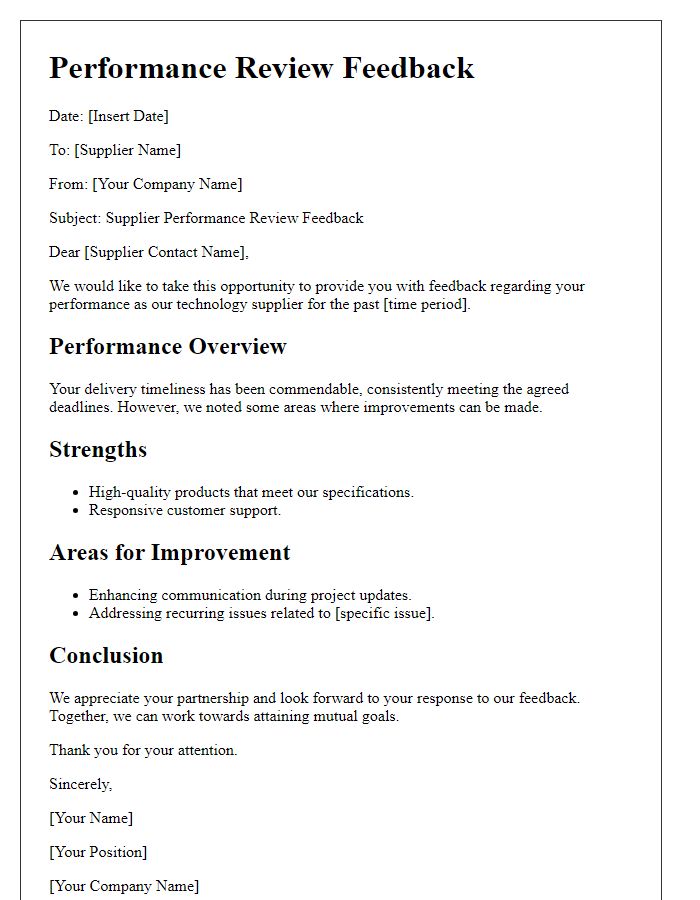
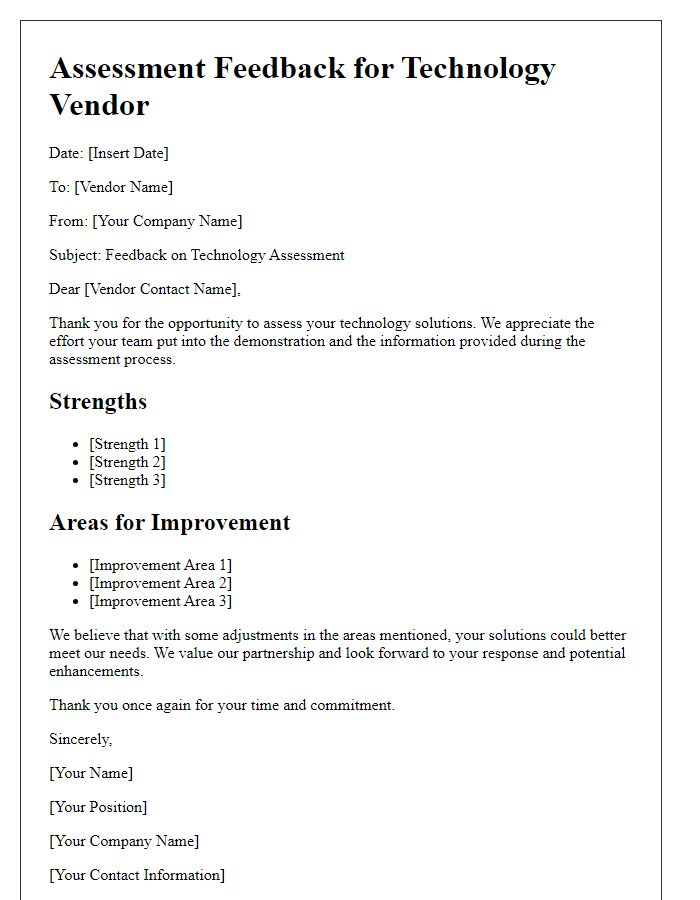
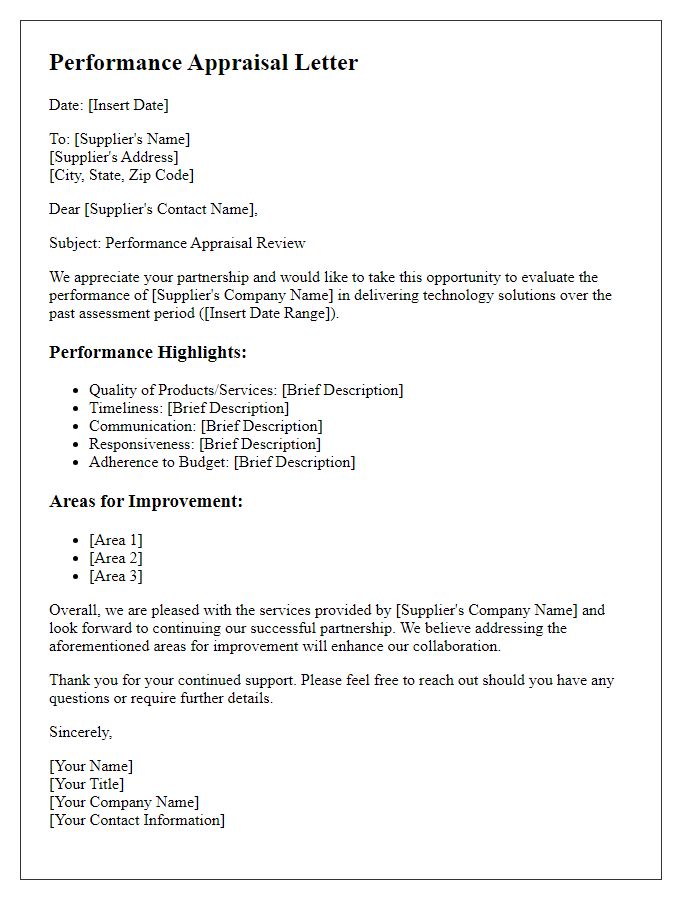
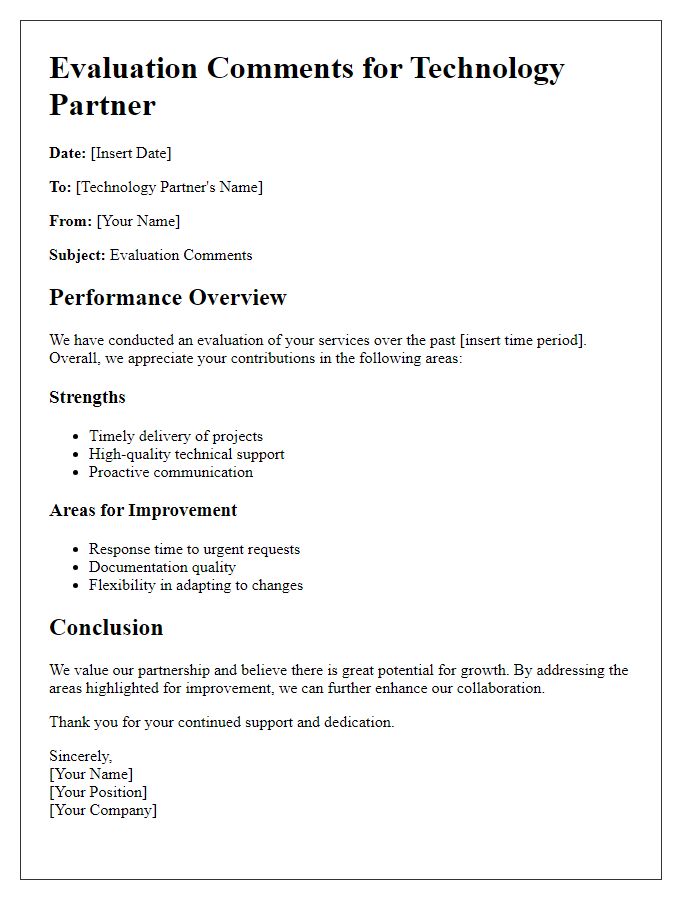
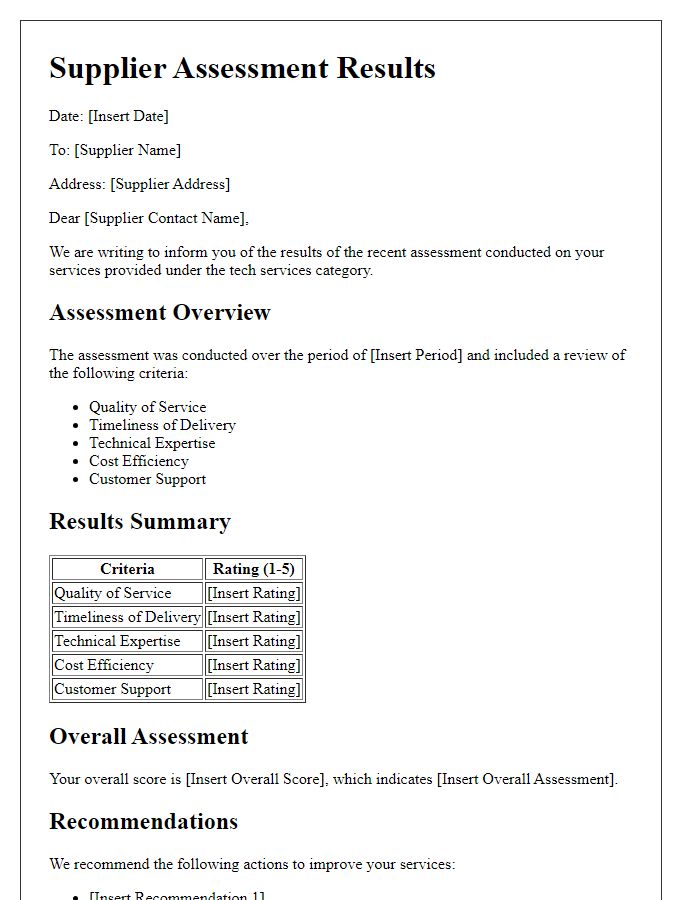
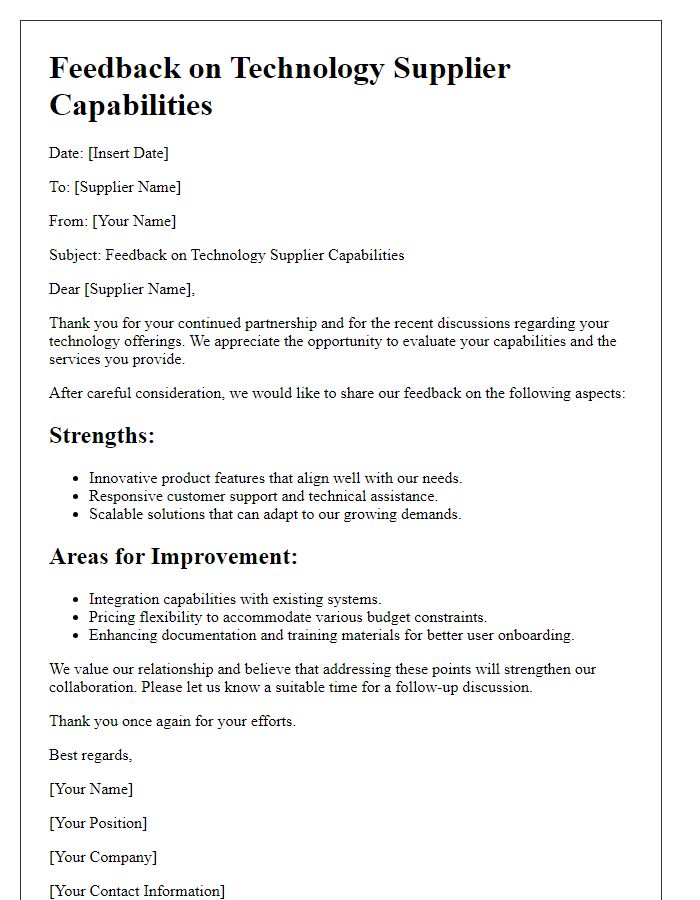
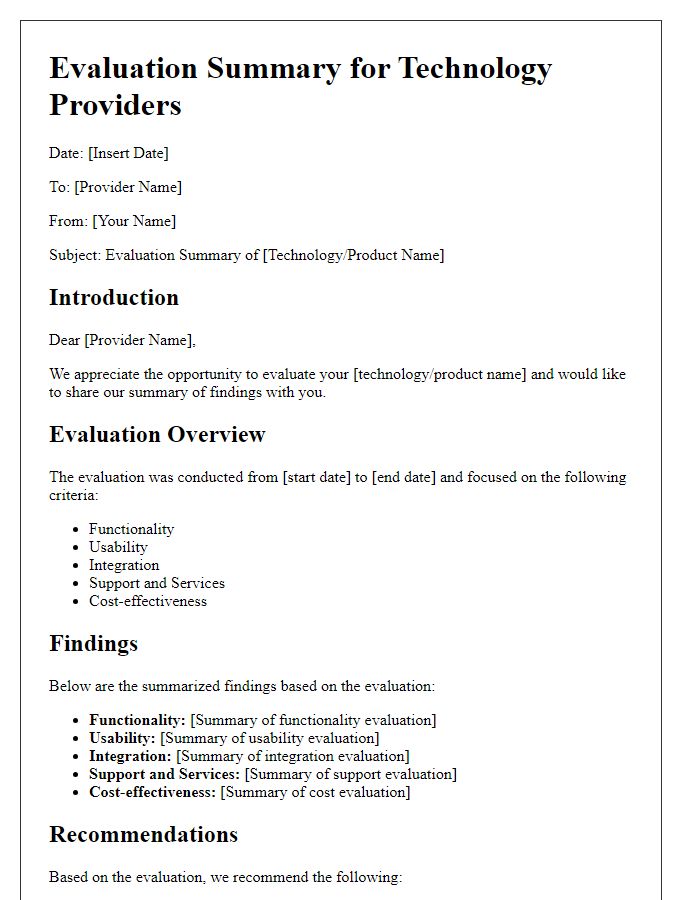
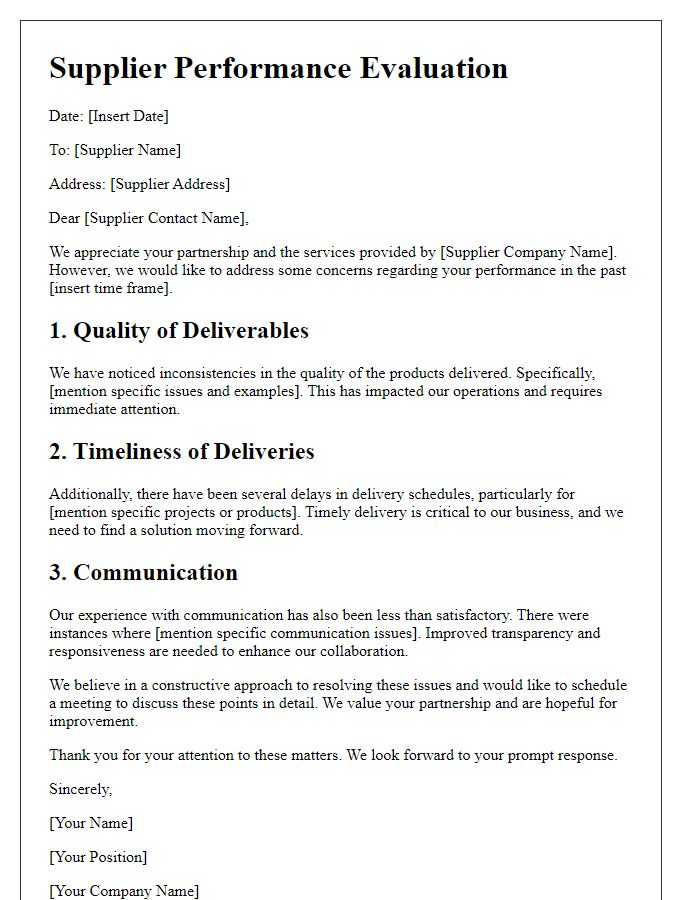
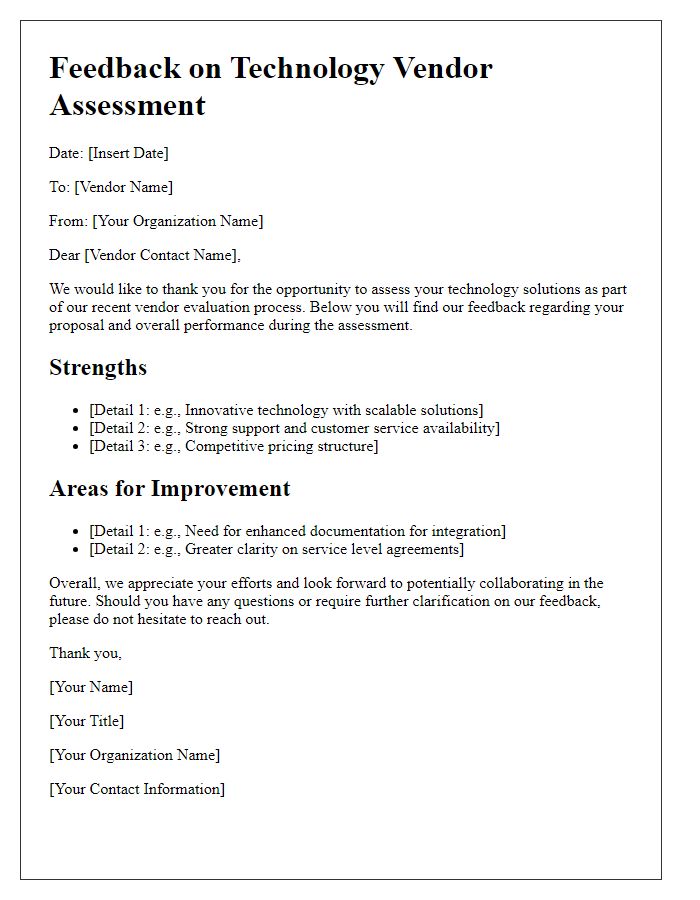
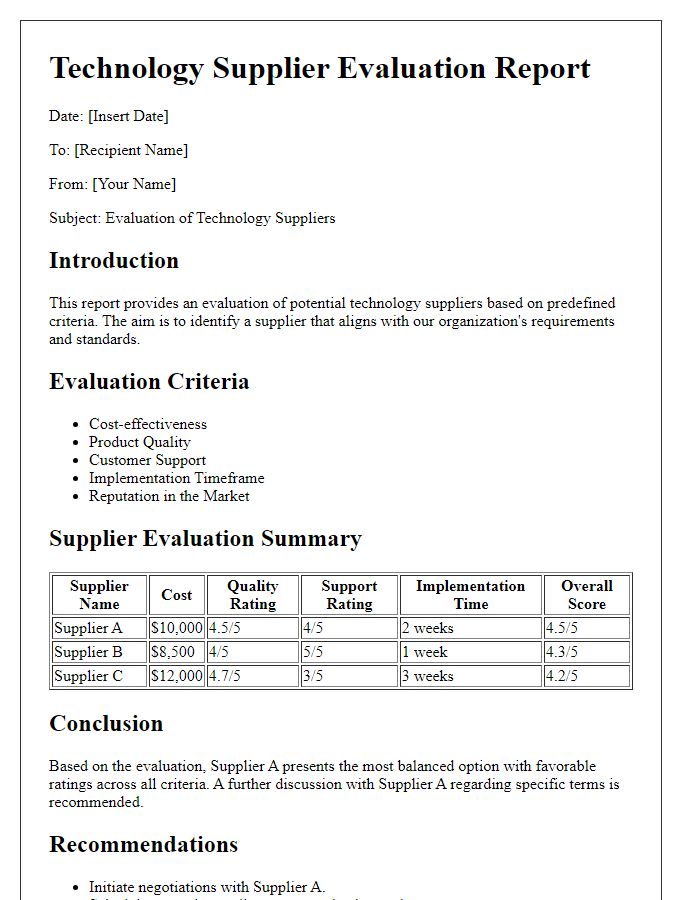


Comments